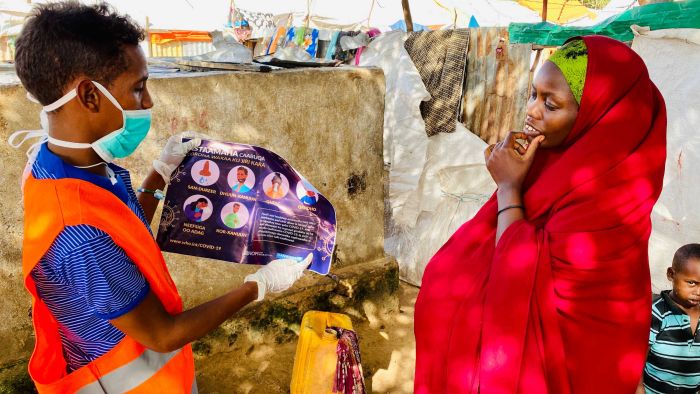The coronavirus has infected about 12 million people and killed more then 540,000 globally, yet in some pockets of the world, people are unaware of its existence.
COVID-19 has ravaged the globe for the past six months, grinding international travel to a halt and plunging economies into recession.
But there are groups of people who still don’t know about the pandemic, and in some cases, they are highly vulnerable to the virus.
Many Ethiopian migrants ‘haven’t heard of COVID-19’
In Africa, many Ethiopian migrants are making a perilous journey across stark landscapes.
Somalia is just the first step before they transit to Yemen, and then to Saudi Arabia and other Gulf countries seeking work, according to Carlotta Panchetti, program officer with the UN’s International Organization of Migration (IOM) in Mogadishu.
“We’re talking mainly about young migrants, among which we have high percentages of unaccompanied children or females traveling alone who are really desperately looking for better opportunities,” she said.
She said when IOM began surveying migrants they encountered to see if they knew about the coronavirus, the numbers shocked them.

In March, when the coronavirus first started spreading through Somalia and was declared a pandemic, 88 per cent of migrants IOM surveyed had not heard about the coronavirus.
At the end of June, awareness had grown, but still 49 per cent were unaware of the global outbreak.
“It’s a lack of access to internet, to reliable information, and could be hindered by language barriers.”

When migrants were told about the highly contagious deadly virus, she said, the response was one of mingled disbelief, surprise, scepticism, fear and uncertainty.
“Now there is the additional stigma [they] might be a carrier of the virus,” she said.
Sp

